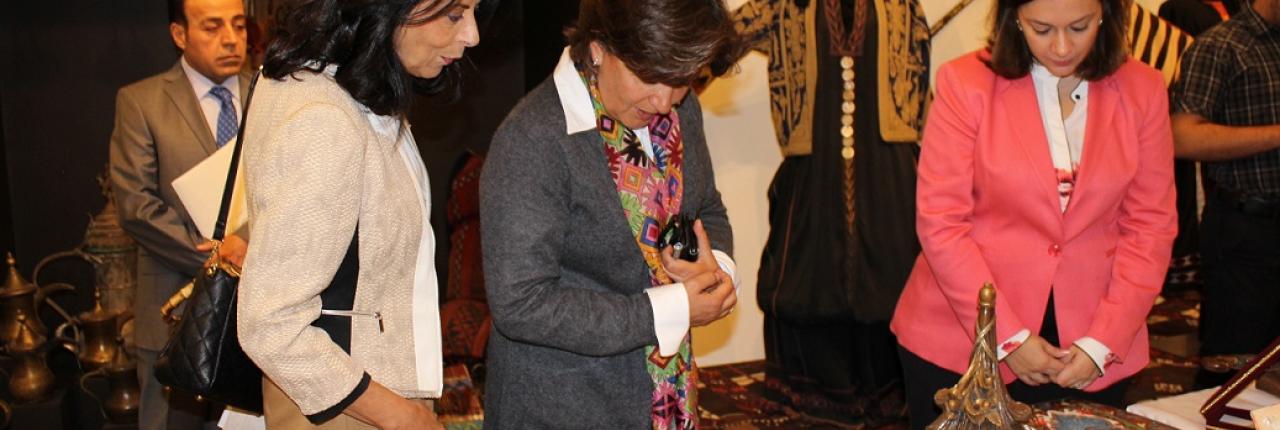
On Thursday, October 25th, under the patronage of Her Excellency Ms. Lina Annab, the Minister of Tourism and Antiquities, the Information and Research Center – King Hussein Foundation (IRCKHF) in collaboration with the University of Plymouth and Tiraz– Widad Kawar Home for Arab Dress shared the findings of their two-year project ‘Jordanian and Syrian Refugee Artisans and Cultural Heritage Entrepreneurship in Jordan.’ The project was funded by the United Kingdom’s Global Challenges Research Fund, the Economic and Social Research Council, and the Arts and Humanities Research Council. Mrs. Widad Kawar, founder of Tiraz Centre, welcomed the delegates including Her Excellency the Minister of Tourism and Antiquities, Ms. Lina Annab, as well as representatives from the Ministries of Labor, Planning and International Cooperation, Culture and Youth, UN agencies, international and Jordanian non-governmental organizations, and representatives from the Jordanian private sector. The event included an exhibition of work by Jordanian and Syrian artisans who participated in the project. Dr. Aida Essaid, director of IRCKHF, stressed the need to preserve cultural heritage in Jordan by strengthening the support for artisans. She stated that the research showed that the skills are not being passed on to the next generation of Jordanian and Syrian youth due to lack of financial security which is unfortunate because this could be an entrepreneurial opportunity. Dr. Haya Dajani, Associate Professor at the University of Plymouth, said that “as researchers, policy makers and practitioners, such research provides us the opportunity to reimagine the refugee as well as the entrepreneur beyond the typical.” The main findings showed that Jordanian and Syrian artisans are facing challenges in establishing sustainable and profitable enterprises in Jordan. Based on these findings, the project partners developed a social enterprise toolkit, trained Jordanian trainers in delivering it, and tested it with Jordanian and displaced Syrian artisans. This contextualized social enterprise training material, was presented by Dr. Diana Abouali of Tiraz Centre, and will be available for other stakeholders to use. The event concluded with a discussion based on the draft policy recommendations presented to the audience by IRCKHF’s senior researchers, Hala Abu Taleb and Majed Abu Azzam. The discussion looked at different ways governmental and non-governmental stakeholders can further support artisan entrepreneurship, including the recommendation to establish a national exhibition of the craft products to be presented permanently and supported by relevant ministries.

;)